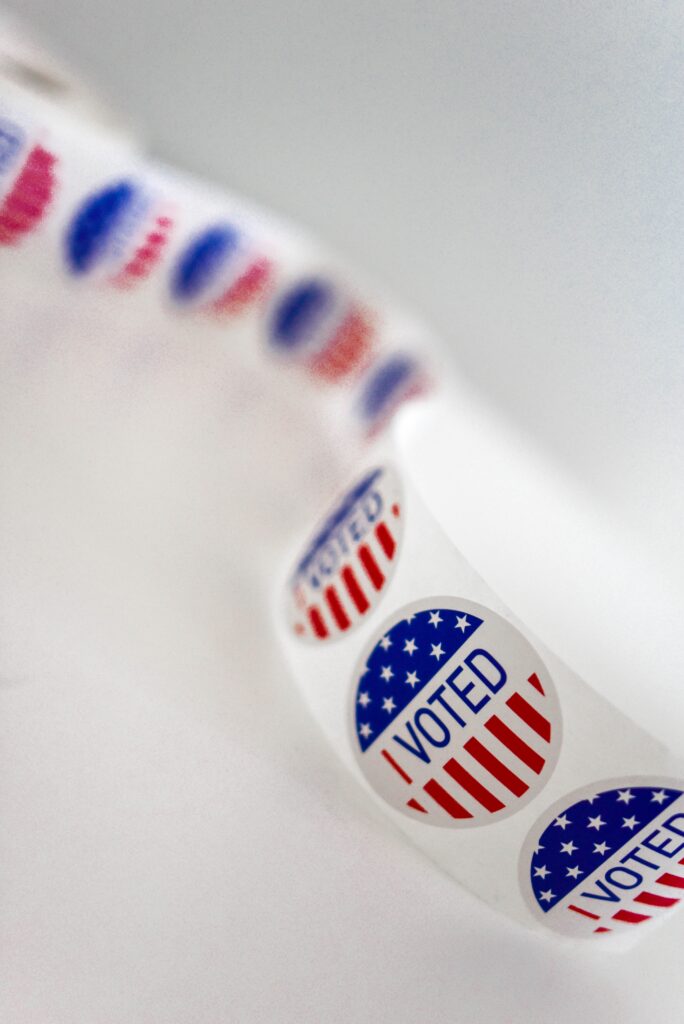
The election is TODAY, and it is hard to believe that this block is going by so quickly!
Last week (week 2), our class focused on the 2016 election and turnout, building upon the framework of week 1 to apply identity-based politics to the outcome of the 2016 election. Specifically, we read the book Identity Crisis, which chronicles much of the data surrounding the 2016 election. The authors ultimately posit that the outcome of 2016 can be largely attributed to racialized identity politics. We also had the opportunity to meet two incredible women: Micha Rosenoer, Executive Director of EMERGE (an organization that trains female, Democratic candidates to run for office), and Rachel Lears, Director of the film Knock Down the House.
Now we are well into week 3! To start off the week, we prepared for the election by meeting with Professor Doug Edlin, with whom we discussed recent judicial developments related to the 1965 Voting Rights Act (VRA) and legal complaints filed by voters regarding voter suppression. Since its inception, the VRA has mandated that certain states with a history of minority-targeted voter suppression must seek preclearance from the Federal Government in order to change voting rules or methods. The formula for determining which states fall under the preclearance requirement (section 4b of the VRA) was ruled unconstitutional by the Supreme Court in Shelby County v. Holder in 2013. As a result, states like Mississippi, Georgia, and Alabama are no longer required to seek preclearance when making changes to voting laws.
The three complaints that we discussed are more recent. The first was written in response to long voting lines in Georgia. The second was broader, written in response to both seemingly strategic changes made to USPS that have made it more difficult for ballots to be delivered on time, and comments made by Trump that baselessly threaten the integrity of mail-in voting. The third complaint alleges that polling locations were minimized in largely minority districts in Arizona, and points to the damaging effects of a new change that threatens jail time for those who drop off ballots for other people in Arizona.
The takeaway is that voter suppression is very real, and it may have an enormous impact on the outcome of the election happening today. Moreover, the ruling on Shelby County v. Holder has allowed states to freely implement suppression tactics that allow for the targeted suppression of minorities and urban areas. For example, Texas has implemented a law allowing for only one dropbox per county, while Georgia and Arizona have limited the number of polling stations in largely minority counties.
Professor Edlin left us with the frightening notion that legal challenges regarding voting processes in certain states could go to the Supreme Court, in rulings for which Amy Coney Barrett is very likely to participate.
What we do know is that the results of the election may not be available tonight. We are likely in for a long week or more of uncertainty as to who the winner will be–unless either candidate wins by a large margin. For now, I will be keeping an eye out for voter suppression tactics, upcoming court challenges, and the impact of identity on the current election.